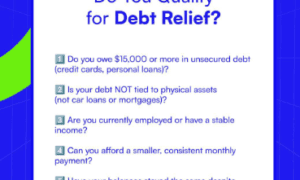Understanding the Debt Settlement Process: What to Expect in India
Debt settlement offers a pathway to financial freedom for those struggling with overwhelming debt burdens. Unlike debt consolidation or management plans, settlement allows you to resolve your financial obligations by paying less than the full amount owed. This process involves negotiating with creditors to accept a reduced lump sum payment that will be considered payment in full for your outstanding debt.
Many Indians find themselves considering this option when facing significant financial hardship due to job loss, medical emergencies, business failures, or simply accumulated debt that has become unmanageable. Personal loan settlement is a common solution for individuals who are unable to meet their repayment obligations. While debt settlement can provide relief, it’s important to approach it with a clear understanding of both the benefits and potential drawbacks.
- Initial Assessment
Before considering debt settlement, it’s crucial to assess your financial situation honestly. Evaluate your income, expenses, assets, and debts. Determine if you can realistically afford a lump sum settlement and if it’s the best option for your circumstances. Consider seeking advice from a financial advisor or debt counselor to explore alternatives like debt consolidation or debt management plans.
- Contacting Creditors
Once you decide to pursue debt settlement, contact your creditors and express your interest in settling your debts. Explain your financial situation and your desire to resolve your obligations. Be prepared to provide documentation supporting your financial hardship, such as income statements, bank statements, and expense reports.
- Negotiation
The negotiation stage is crucial in debt settlement. You or your representative (e.g., a debt settlement lawyer) will negotiate with your creditors to reach a mutually agreeable settlement amount. This often involves back-and-forth offers and counter-offers. Be prepared to provide a reasonable lump sum offer based on your financial capacity.
Tips for Negotiating with Creditors:
- Be prepared: Gather all necessary documentation and have a clear understanding of your financial situation.
- Be polite and respectful: Maintain a professional and courteous demeanor throughout the negotiation process.
- Be realistic: Offer a settlement amount that is reasonable and reflects your ability to pay.
- Be persistent: Don’t give up easily. Creditors may initially reject your offer, but persistent negotiation can often lead to a favorable outcome.
- Consider seeking professional help: If you’re uncomfortable negotiating on your own, consider hiring a debt settlement lawyer or consultant.
During this stage, some individuals also seek the assistance of anti threat recovery services to handle aggressive creditors and collection tactics. These specialized services help ensure that borrowers are not subjected to undue harassment during the negotiation process.
- Settlement Agreement
Once you and your creditors reach an agreement, they will draft a formal settlement agreement. This document outlines the terms of the settlement, including the settlement amount, payment schedule, and any other conditions. Review the agreement carefully and seek legal advice if needed to ensure it protects your interests.
- Payment and Closure
After signing the settlement agreement, you make the agreed-upon payment to your creditors. Once they receive the payment, they will issue a settlement letter confirming the closure of your accounts. Keep this letter for your records as proof of settlement.
- Impact on Credit Score
Debt settlement can negatively impact your credit score. It may appear on your credit report as a “settled account” or “paid in full for less than the full balance.” This can affect your ability to borrow money or obtain credit in the future. However, the impact varies depending on your credit history and the specific terms of the settlement.
Understanding the Role of Credit Bureaus
Credit bureaus like CIBIL, Experian, and Equifax play a crucial role in debt settlement. They collect and maintain credit information about individuals, including details about debt settlements. When you settle a debt, it’s typically reported to the credit bureaus, and this information is reflected in your credit report.
If you find any inaccuracies or errors in your credit report related to debt settlement, you have the right to dispute them with the respective credit bureau. Provide supporting documentation to validate your claim.
- Rebuilding Credit
After settling your debts, it’s essential to focus on rebuilding your credit score. Make all future payments on time, maintain a healthy credit mix, and monitor your credit report regularly for any errors or inaccuracies. Consider seeking guidance from a credit counselor or financial advisor to develop a credit repair strategy.
Important Considerations
- Tax Implications: Debt settlement can have tax implications. The forgiven portion of your debt may be considered taxable income. Consult with a tax advisor to understand the potential tax consequences.
- Debt Settlement Companies: If you’re struggling to negotiate with creditors on your own, you can consider using a debt settlement company. However, exercise caution and research thoroughly before choosing a company. Some companies may charge high fees or engage in unethical practices.
Choosing a Reputable Debt Settlement Company
If you decide to use a debt settlement company, consider the following factors:
- Fees: Understand the fee structure and ensure it’s transparent and reasonable.
- Reputation: Research the company’s reputation and check for online reviews and testimonials.
- Experience: Look for a company with experience in settling debts similar to yours.
- Transparency: Ensure the company is upfront about the process, potential risks, and impact on your credit score.
Alternatives to Debt Settlement
Debt settlement is not the only option for dealing with overwhelming debt. Consider these alternatives:
- Debt Consolidation: Combining multiple debts into a single loan with a lower interest rate.
- Debt Management Plans: Working with a credit counselor to create a budget and repayment plan.
- Bankruptcy: A legal process that can eliminate or reduce your debts, but it has serious long-term consequences for your credit.
- Legal Assistance: If you’re facing complex debt situations or legal challenges, consider seeking assistance from a debt settlement lawyer. They can provide expert advice, negotiate on your behalf, and protect your rights.
Conclusion
Debt settlement represents a viable path to financial recovery for many Indians struggling with overwhelming debt. While challenging, successful settlement can provide the fresh start needed to rebuild financial stability.
Companies like “Bank Harassment” offer specialized support for those facing aggressive collection tactics, helping protect your rights during the settlement process.
Remember that financial recovery is a journey—settlement is just one important step toward lasting financial wellbeing.



































